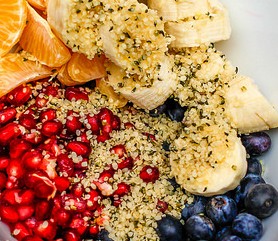Did you know that eating snack bars may not be good for your health? They are generally marketed as “granola,” “protein,” “energy,” or “nutrition” bars, but most of them are more like candy bars. The nonprofit Cornucopia Institute reports that snack bars are generally not as healthy as their manufacturers would like you to believe.
Except for the certified organic bars, most snack bars contain unfamiliar chemical ingredients. Beware of bars labeled “natural,” which means nothing. Any company can put a “natural” claim on a product regardless of its ingredients. Natural bars can contain harmful chemicals. Many “natural” bars contain “soy protein isolate,” which should be avoided.
In addition, the “non-GMO” label is meaningless, unless accompanied by the USDA organic label.
The only regulated labels are “made with” organic ingredients and “USDA organic.” Bars labeled “USDA organic” have at least 95 percent of their ingredients, by weight, certified as organic. There are no toxic pesticides, insecticides, herbicides or harmful chemicals involved in their manufacture. They are always verified as non-GMO. You can be relatively sure that the ingredients are not dangerous.
Bars labeled “made with” organic ingredients have at least 70 percent of their ingredients, by weight, certified as organic. They are not as heavily regulated as “USDA organic.” They may have fewer health benefits than “USDA organic” bars and should be avoided in favor of USDA organic bars.
If you want to ensure you are eating a healthy snack bar, buy USDA organic bars containing nuts, seeds and fruit as their primary ingredients. The Cornucopia Institute says “Simple Squares” have it all, seven whole organic ingredients in each bar. Avoid bars with added sweeteners, particularly sugar, and added flavors and colors, even “natural” flavors and colors.
Cornucopia Institute has a scorecard showing the relative nutritional value of different snack bars, which you can find here.
This post was originally published on December 19, 2017.
Here’s more from Just Care:
- Eat more plants . . .reduce your risk of Alzheimer’s
- Ready for help losing weight? Medicare covers weight-loss counseling
- To save money on drugs, avoid chain pharmacies; millions buy drugs abroad
- HIPAA and why it is important to have a signed health care proxy, someone to speak for you if you cannot speak for yourself
- Four key differences between traditional Medicare and a Medicare Advantage plan

Leave a Reply